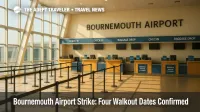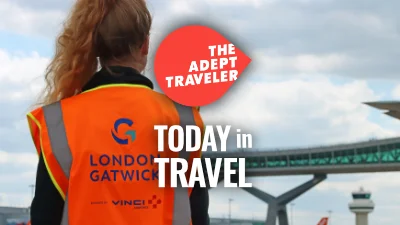Strikes in Ireland
Strikes in Ireland have periodically brought the pulse of the nation to a temporary standstill, impacting various sectors, and notably, travel and tourism. As a country heavily reliant on its vibrant tourism industry, particularly for cities like Dublin, Galway, Cork, and others, any disruption in transportation services can have significant ripple effects. Understanding the nuances and potential impacts of strikes is crucial for both travelers planning a visit and for the stakeholders within Ireland’s tourism and transport sectors.
### Historical Context
Historically, strikes have been an essential part of Ireland's socio-economic landscape, reflecting deeper systemic issues within the workforce. From the dramatic railway strikes of the early 20th century to the more recent actions by airline and bus workers, strikes have not only affected the daily lives of Irish citizens but also the experience of the millions of tourists visiting each year. For example, the Irish railways strike of 1920 was a notable event that disrupted travel across the country, compelling thousands to find alternative transportation.
### Types of Strikes Impacting Travel
The most common types of strikes affecting travel in Ireland include industrial action by airline staff, railway workers, bus drivers, and taxi operators. Each form of strike can cause different levels of disruption:
- **Airline Strikes:** Airlines like Ryanair and Aer Lingus have experienced multiple strikes over the years, primarily concerning wage disputes and working conditions. These strikes can lead to numerous flight cancellations and delays, stranding passengers at airports and impacting connecting flights globally.
- **Railway Strikes:** Irish Rail, or Iarnród Éireann, has also seen its fair share of industrial action, causing significant disruptions to intercity and regional train services. Such strikes could result in crowded buses and an overload on alternate transportation modes.
- **Bus Strikes:** Operators like Bus Éireann and Dublin Bus have faced strikes arising from conflicts over wages, working hours, and conditions. These strikes are particularly disruptive in urban areas where buses form the backbone of public transport.
- **Taxi Strikes:** Less frequent, but taxi strikes do occur, usually linked to fare regulations, permits, and competition policies. These mainly affect urban centers, where tourists rely on taxis for convenience.
### Impact on Tourists
For tourists, understanding when and why strikes occur can make the difference between a smooth vacation and a chaotic experience. Strikes can lead to sudden changes in itinerary, difficulties in reaching accommodations, and even missing flights or connections. The unpredictability can be frustrating, but being prepared and informed can mitigate some of these challenges.
1. **Disruption in Travel Plans:** A strike can lead to the cancellation of flights, train journeys, and bus services. Travelers might find themselves stranded or forced to pay additional costs for alternative transportation.
2. **Accommodation Issues:** Missed connections and delays can result in failed check-ins at hotels or additional unplanned nights requiring accommodation, which may not always be readily available.
3. **Schedule Changes:** Attractions and planned tours can be missed if transportation becomes unavailable or delayed, impacting the overall experience of the visit.
### Navigating Strikes as a Tourist
Being proactive can help minimize the impact of strikes on travel plans. Here are some strategies tourists can employ:
1. **Stay Informed:** Keeping abreast of news through websites, social media, and travel alerts from the embassy or consulate helps in knowing about impending strikes.
2. **Flexible Itineraries:** Having flexible travel plans and allowing extra time for potential disruptions can reduce the stress of unforeseen changes.
3. **Alternative Transport:** Familiarize yourself with alternative routes and modes of transport. Renting a car, if feasible, can offer more control over travel plans during strikes.
4. **Travel Insurance:** Comprehensive travel insurance can cover unexpected costs arising from strikes, like accommodation and rebooked flights.
5. **Local Contacts:** If possible, maintain contact with locals or travel agents who can provide guidance and assistance in navigating the terrain during a strike.
### Economic and Social Implications
The wider implications of strikes extend beyond mere inconvenience. Strikes reflect the ongoing struggles within the workforce for better conditions, wages, and regulations. For Ireland's economy, recurrent tourism-related strikes can potentially tarnish its reputation as a reliable travel destination. Positive and negative economic impacts from strikes include:
- **Economic Loss:** Immediate economic losses from cancellation of services, loss of business for hotels, restaurants, and other tourism-dependent businesses.
- **Social Awareness:** On the flip side, strikes raise social awareness about important issues within the working class, driving changes and reforms that ultimately aim to improve the sectors involved.
### The Role of Government and Unions
The Irish government and trade unions play critical roles in resolving and mitigating strikes. Government intervention can sometimes provide quick resolutions, particularly in critical periods like the tourist high season, by negotiating or enforcing regulations that address the reasons for unrest. Trade unions are vital in representing workers' interests and ensuring that contractual and welfare standards are upheld.
Government strategies to prevent strikes include mediating discussions between employers and employees, enforcing labor laws to protect worker rights, and ensuring timely payment and fair working conditions, which can reduce grievances. On the other hand, unions focus on collective bargaining, ensuring fair representation of their members' interests, and organizing strikes as a last resort when negotiations fail.
### Future Outlook
The dynamic landscape of travel and industrial relations in Ireland suggests that while strikes may continue, there are opportunities for improving resilience and minimizing disruption. Investments in infrastructure, improved labor relations, and technology-driven solutions, such as real-time travel updates and resilient transport networks, can enhance the travel experience in Ireland irrespective of strikes.
Ultimately, striking a balance (no pun intended) between the rights and needs of workers and ensuring seamless travel experiences for tourists is key to sustaining Ireland's appeal as a welcoming and reliable destination. While strikes are, by nature, disruptive, their occurrence underscores the ongoing process of achieving fair and equitable conditions within the workforce, which is essential for long-term sustainability in the travel and tourism sector.
Bournemouth Airport strike: Four autumn walkout dates confirmed

European Travel Strikes: July Disruptions and What to Expect

